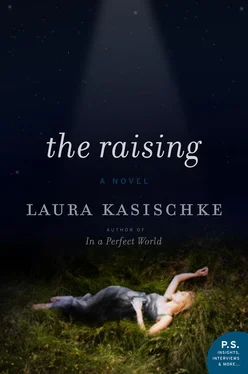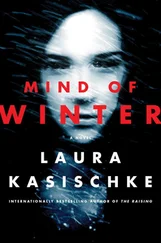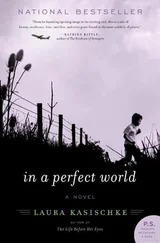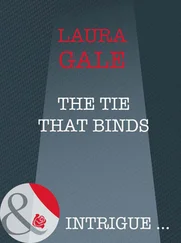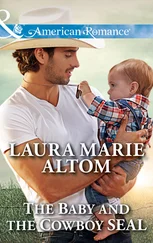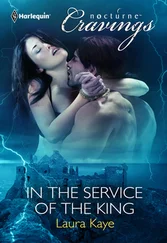They slept with the cows. They carried the cows with them everywhere. And, unlike every other toy they’d had so far in their short lives, they never lost the cows. The cows were never dropped and forgotten at the supermarket. They were never left behind in the backseat of the car overnight.
So, after that success, Mira had brought home a couple of plastic cows one night after teaching, and Matty and Andy had gone crazy with delight. A few days later, she bought a couple of cow-decorated cookies at a specialty bakery that she passed on her way to the parking ramp. They loved the cookies, licked the cookies, but they shrank from Mira when she pointed to her own teeth, her own open mouth, suggesting that they eat the cookies.
“You’re overcompensating,” Clark had said.
“What?”
“Overcompensating,” Clark said. “Trying to buy them off.”
“Buy them off?” Mira had tried to follow him down the hallway, to ask him what exactly she’d be overcompensating for , but he’d gone into the bathroom and shut the door and stayed in there until she had to leave for work.
In the nursery, Mira tacked up a poster of a cow grazing on a grassy hillside in Vermont, and every morning before they were taken out of their cribs the twins would stand and gaze at the poster, babble to each other in their language about the cow:
“Descher neigelein harva stora.”
“Gott swieten mant brounardfel.”
Mira imagined they were speculating. Was the cow happy? Did she have a family? Would her future be as peaceful as her present seemed to be? But when Mira herself pointed at the cow and said, “Cow!” and then waited for them to say the word, they looked at her blankly. “Haller,” one or the other would say. “Haller,” one or the other would reinforce. Then, they mirrored her own expectancy, waiting, it seemed, for her to say the word. To confirm it. To show that she understood what a haller was—that it was black and white and grazing on a grassy hillside in Vermont right in front of her face—and it was all Mira could do to keep from saying it (clearly they were talking about the same thing here, trying to give it a name), but she said, “Cow,” again, more desperately this time, and with less assurance, and they looked, she thought, disappointed in her.
When Clark had finally walked in the door with the twins that afternoon, Mira got on her knees and embraced them so tightly for so long that Matty, who could never get enough, finally pulled away, looking alarmed.
“Mommy just really, really missed you,” she said, and Matty gave her a reassuring kiss on the crown of her head and patted her shoulder as if she were an old woman in a nursing home. She’d looked up then and caught Clark’s eye, and they’d both laughed. She stood and embraced him, and he seemed to take her in his arms with genuine warmth. “I missed you,” Mira said, and they kissed—not a lingering kiss, but she’d felt the goodwill in it. He must have missed her, too.
Now she was hoping they’d have a good, peaceful evening. She’d bought two tuna steaks from the expensive gourmet market near campus. The woman behind the fish counter had wrapped them in several layers of white paper, and Mira had carried them hopefully home. Clark used to like to cook tuna steaks in sesame oil—pink in the middle, seared white on the outside. It had been at least a year since he’d done that, but she recalled that they were always delicious, and Mira fantasized that he’d make the fish that night after the boys went to bed, while she tossed a salad and boiled rice.
Maybe, after dinner and a last glass of wine, they would make love.
Clark seemed refreshed, in a better mood than he’d been in for a while. The only jab he’d made when she mentioned his good mood was, “It was nice to have some help.”
Maybe, then, he’d seen the look on her face and was as eager as she was to avoid a fight, because he’d qualified it right away:
“My mother really takes over, you know. She’d have spoon-fed me for two days if I’d let her. She had the boys up and dressed and playing with an old set of my blocks before I woke up both mornings.”
Since then they’d had only one stiff exchange—he couldn’t find his running shoes, which he’d left under the bed, but which, before finding them, he accused Mira of having put “in the toybox or something” while he was gone—and one argument that had ensued when she found, after Clark had left to go running, a note in his handwriting on the kitchen counter:
2:20—Your boyfriend called again. I told him you were in your office, to try your number there.
Mira had held the torn piece of notebook paper in her hand for quite a while, staring at it, trying to discern its meaning. For a crazy second she imagined he was referring to Jeff Blackhawk, but never once had she spoken to Jeff Blackhawk on the phone. Still, Jeff was honestly the only man who’d even looked at her, as far as she could tell, since before the twins were born.
Surely, she thought, Clark couldn’t be referring to any of the boyfriends she’d had before they were married?
When he came back in the door, Mira held the piece of paper up, and said, “What is this?”
Panting, red-faced, sweat trickling in zigzagging rivulets down his cheeks, Clark didn’t meet her eyes. He brushed past her to the bedroom.
“Clark?” she asked, following him.
“You know perfectly well, Mira. Your Eagle Scout. Your ‘work-study’ student,” he said, making air quotation marks around the word, and sat on the edge of the bed and began unlacing his shoes.
“Perry Edwards? Perry’s my boyfriend now?” Mira laughed. “Perry’s nineteen. ” Relieved, Mira thought, It’s a joke, that’s it, and reached out to ruffle Clark’s sweaty hair, but when he felt her hand on his head, he flinched away from her.
“Clark?” Mira said. “You’re joking, right?”
“Yeah,” Clark said. “That’s right. I’m a big joker. Or, I’m a big joke .”
He took his shirt off, soaked with sweat, tossed it on the bedroom floor, and walked past her. He was, Mira saw for the first time, losing a bit of weight. He didn’t have the chiseled look of a few years before, but he was getting there. The extra ten (fifteen?) pounds he’d put on was coming off.
“What’s this about?”
Mira whispered it, following Clark past the twins’ room. They were blessedly asleep an hour earlier than usual.
“Clark?”
He’d continued to the bathroom and gotten in the shower. She stood outside, staring at the bathroom door until, finally, she went into the living room and tried to read the newspaper. When he came back out, he seemed to have forgotten the argument.
“Glass of wine? A little QT?” he’d asked.
She told him about the fish, and that she’d ordered Halloween costumes for the boys that she wanted to show him. She put two glasses of wine on the coffee table, and when he came into the living room—face still flushed, hair damp—Mira held up the cow costumes, and said, “Can you even believe how cute these are?”
Clark looked at them as if he didn’t recognize them as children’s costumes at first, and then he blinked, and he said with so little emotion that he might as easily have been expressing hatred or contempt as complete apathy, “Are those for the boys?”
“Yeah,” Mira said, and couldn’t help adding, although as soon as she did she wished she hadn’t, “Who else?”
“I’m just asking,” Clark said, “because cows aren’t boys .”
It took Mira a few seconds to compose any kind of response at all, and then she said, “I’m aware of that, Clark,” and let the costumes drop to her lap.
Читать дальше
